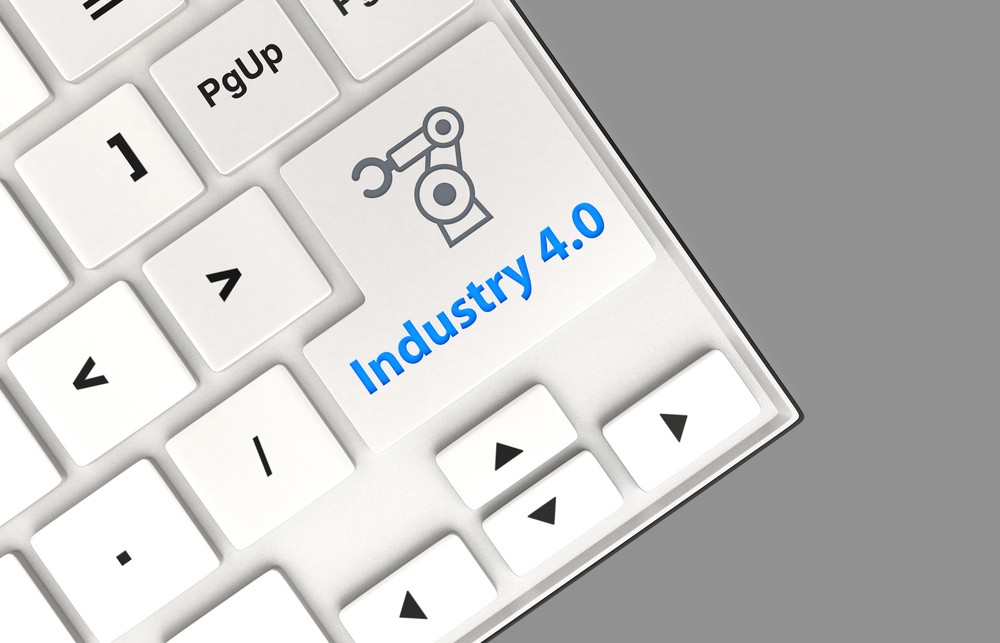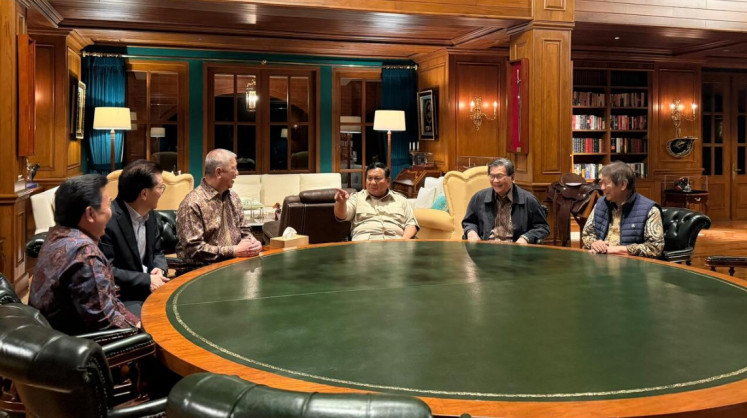Popular Reads
Top Results
Can't find what you're looking for?
View all search resultsPopular Reads
Top Results
Can't find what you're looking for?
View all search resultsFour ethical challenges in industry 4.0
Unskilled labors would be the first affected segment but it does not mean high skilled labors would be entirely safe.
Change text size
Gift Premium Articles
to Anyone
E
thics has been developing its scope across centuries. Yet, its classical challenges remain the same viz., conflict of interests (CoI) and dilemma (D).
As tricksy as a little device is ethics in the realm of industry 4.0. It is so because the distinction between CoI and D is much more nebulous.
Under the banner of industry 4.0, things play more significant roles in the internet of things (IoT), automation, the cyber-physical system, and artificial intelligence (AI) all of which affecting humans in making ethical judgments.
Moreover, industrialists (the management and owners) are vulnerable to four ethical challenges. First, there is a gap of comprehension concerning the nature of industry 4.0 between well-developed countries and developing countries.
On the one hand, the German Federal Ministry for Economic Affairs and Energy defines industry 4.0 as "the intelligent networking of machines and processes for industry with the help of information and communication technology."
Accordingly, the intelligent networking itself contains some preferences viz., convertible factory, flexible production, optimized logistics, customer-oriented solutions, the resource-efficient circular economy and the use of data.
Those preferences significantly redefine the way we deal with our own internal and external stakeholders such as employees and customer issues. On the other hand, the Indonesian Industries Ministry does not bother themselves with problems of definitions but jumping into four strategies.
First, encouraging students to master the IoT. Second, using digital technology to increase the productivity and competitiveness of micro, small and medium enterprises. Third, the adoption of augmented reality, the cloud system, the cybersecurity, autonomous robots and big data. Fourth, the innovation of technology through start-up companies by facilitating the business incubation.
I am afraid, however, those strategies are meaningless due to our heavy economic orientation on consumption. On the contrary, Germany initiated the notion of 'industry 4.0' in 2011 in order to support its manufacturing industry.
Leaving such epistemological gap as it is; implies a CoI between the inability of developing countries to catch up with the high technology in developed countries; and the former's desire to be voguish.
If this is the case, we should quash such gaudy desire, and striving to develop our own technology instead of purchasing from overseas.
Further, industry 4.0 thrives on the basis of knowledge economy. Rather than the means of production, this type of economy grows on the ground of accessibility, quality and quantity of information. This is the second ethical challenge.
Here, the Indonesian government should consider thoroughly how to manage and treat information in the best possible way of serving our national interests. In computing, information is transmitted, stored and processed data through a computer.
That is why some people believe that data is the new oil but it could turn out to be a new threat if authorities easily give up to vested interests such as in the case of abolishing the legal obligation to establish data centers and disaster recovery centers in Indonesia (article 17 verse 2 of the 2012 Government Rules No. 82 on the Implementation of Electronic System and Transaction).
Therefore, authorities, journalists, ethicists and legal experts should cooperate in resolving various CoI regarding the traffic of information and data in the cyberspace.
The third challenge is how to reduce the negative effects of automation to human labors. If there is a clash between the demographic bonus and automation, this would lead to massive unemployment and rampant social exclusion.
Unskilled labors would be the first affected segment but it does not mean high skilled labors would be entirely safe.
Insofar as AI utilizes the machine learning process, their intelligent capacity would level off with (if not surpass) skilled labors.
Fourth, once things, robots and AI are subject to ethics, they should be treated and assessed impartially. It would be more complicated once they are legally regulated.
Insofar as law enforcement in developing countries is in question, such regulations would be less effective.
Among those four challenges, only the third one appears as a D. Blurring D and CoI only perplexes the issue.
To easily distinguish CoI and D, we should envisage four quadrants within which D is located only in the down left (negative and negative) while in contrast CoI is situated in the upper left (positive and negative) and the down right (negative and positive).
By doing so, we can hope that policymakers overcome those challenges well.
***
The writer is a researcher at the Mastel (Indonesian Society for Telematics). The views are his own.










